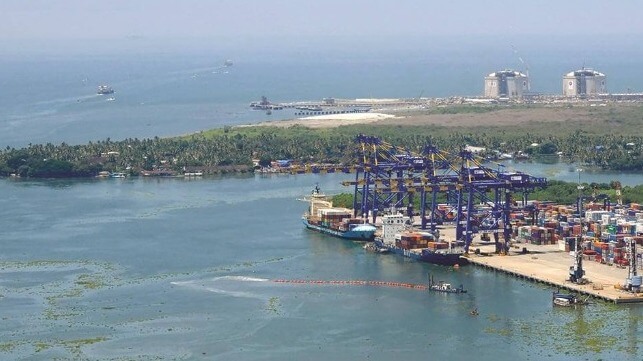India Imposes Age Ban on Buying or Operating Cargo Ships

India’s government is moving forward with imposing age restrictions on the ships that can be acquired or operated to India in an effort it says to modernize and improve the quality of the country’s fleet and to help India meet the emerging emissions regulations. The rules will be applied to most classes of commercial ships either owned or chartered by Indian shipping companies or foreign flag ships operating within the Exclusive Economic Zone of India.
“Whereas the average age of the world’s fleet is on the declining trend, the average age of the Indian tonnage is on the increasing trend over the years,” writes the Directorate General of Shipping (DGS) based in Mumbai. “This is a need to modernize the Indian fleet, which requires extensive review of the requirements of the registration and operation of ships, to ensure quality tonnage under the Indian flag.”
Reports of the possible age restrictions first surfaced in January 2023. The regulators said that the matter has been discussed extensively with the Indian National Shipowners Association and other stakeholders before the regulations were finalized. The rule is dated February 24 and was released online on February 27.
The rules vary to some extent by class of ship and also if the ship is currently in operation or if a shipowner is seeking to acquire or charter a ship in the future. The rules however apply to all ships required to be licensed by the DGS which includes all ships registered in India, ships engaged in the coastal trade, or foreign-flag ships either operated under charter to Indians or trading within the EEZ.
Ships currently operating will be grandfathered with a three-year phase-out clause but in most cases, shipowners are now restricted from chartering or buying ships more than 20 years old. For oil tankers, cargo ships, and most offshore vessels there are also additional requirements to purchase or charter ships between 15 and 20 years old. Previous rules did not require technical clearance for vessels below 25 years of age.
Ships over the age of 25 must be withdrawn from service. This includes oil tankers, bunker barges, bulk carriers, general cargo ships except for container vessels, mini bulk carriers, Ro-Ros, anchor handling tugs, and some classes of offshore vessels. Most other classes, including container vessels, gas carriers, and tugs, have to be withdrawn by age 30. Dredgers are giving the longest lifespan of up to 40 years.
The rules cover all classes of ships except passenger ships and ships engaged in parts of the energy trade. This includes FSRUs, FPSOs, and drilling and production platforms.
The DGS emphasizes that the rules will assist in ensuring the phasing out of fossil fuel ships, while some critics say the order is in direct response to Indian shipowners buying and chartering older ships often at reduced prices. To encourage trade and support India’s state-owned businesses, the government had offered subsidies to Indian-flagged vessels, which some believe contributed to the use of older, lower-cost vessels.
To help offset some of the impacts and to spur the country’s lagging shipbuilding industry, there are reports that the government plans to offer cash subsidies, lower taxes, and other incentives to order new ships. India has a large shipbuilding industry with approximately 35 yards either operated by private companies or the government.
The order became effective immediately but it has a provision to exclude current purchase or charter transactions that had been entered into before February 24.
